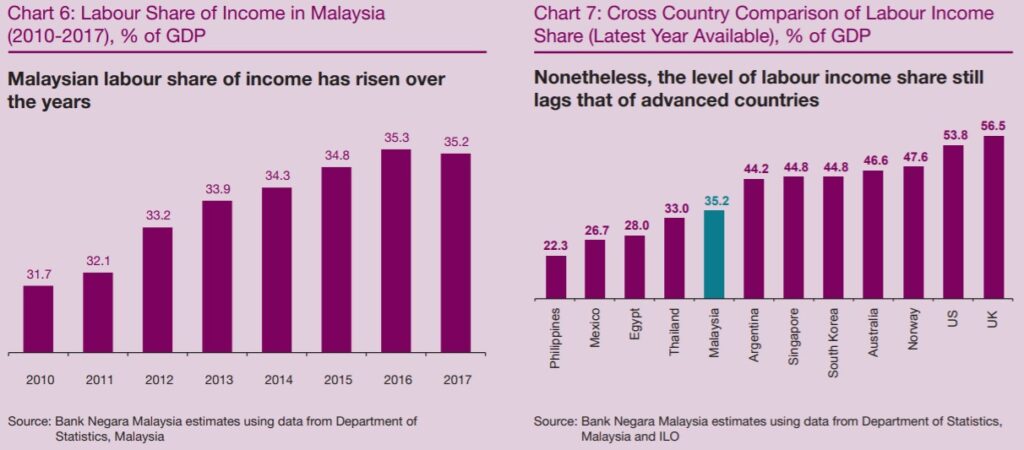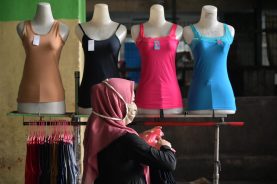From the outset, the recent Malaysian labour law reform exercise was a result of Malaysia’s participation in the Trans-Pacific Partnership (TPP). In 2015, the Malaysian government signed a Malaysia-US Labour Consistency Plan. It promised to take steps to reform labour laws to conform with International Labour Standards.
The reform exercise did not take place quickly. This may have been due to the unilateral withdrawal of United States from the TPP, and the later rebranding of TPP into Comprehensive and Progressive Agreement for Trans-Pacific Partnership (CPTPP).
In spite of the dynamic of trade liberalisation, before the 14th General Election (GE14) on 9 May 2018, then-Malaysian opposition coalition Pakatan Harapan promised to ensure protection of workers’ rights at par with international standards in adhering to ILO conventions.
After the regime change, the Ministry of Human Resources made public the proposed amendments to Trade Union Act 1959, Industrial Relations Act 1967 and Employment Act 1955. Both Malaysian Trades Union Congress (MTUC) and the Labour Law Reform Coalition (LLRC) presented their versions of reform proposals.
In their short 22-month rule, the Industrial Relations Act is the only act that Pakatan Harapan has passed through parliament. Since the formation of the new Perikatan Nasional (National Alliance) government as a result of parliamentarians crossing over in February 2020, the Malaysian trade union community has become frustrated with the lack of progress in labour law reform.
As the Perikatan Nasional regime fights to secure its razor thin majority in the parliament and deal with the Covid-19 crisis, LLRC has continued to make public statements and organized webinars to advocate for implementation of the Industrial Relations Act 2020, and for reform of the Trade Union Act and Employment Act.
Labour law reform is critical in addressing asymmetric power between owners of capital and the workers in Malaysia. This semi-authoritarian state continues to employ repressive measures devised by the colonial regime to tame the labour movement.
The triple work burden of Indonesia’s women unionists
The delicate balancing of labour across the home, workplace and union is no small burden.
In 1940-1941, the British colonial regime enacted Trade Unions Ordinance and Trade Disputes Ordinance to suppress and control a militant labour movement instigated by the Communist Party of Malaya. The law gave the regime huge discretionary powers to refuse registration or ban trade unions involved in “unlawful” activities. Militant union leaders who were considered communist sympathisers were executed or banished.
The subsequent amendments to the Trade Union Ordinance after World War II forced the federation of trade unions to register within particular trade, industry and occupation categories, a measure aimed to weaken general labour unions led by communist sympathisers. The highly restrictive and undemocratic law, which violates the principle of freedom of association, has survived until today. Trade Unions are fragmented by explicitly defined industries. For example the government rejected the application of Electrical Industry Workers’ Union to represent workers in electronics factories.
In the post-colonial era, trade unions were, and are, suffocated by stringent, colonially-inherited labour laws favourable to owners of capital. The right to strike and picket are severely restricted in the Trade Union Act and Industrial Relations Act. In-house unions were encouraged after implementation of the Look-East Policy in 1980s. Until today, electronic workers have been denied their right to register a national union of electronics workers.
As a consequence of the oppressive control of the labour movement and the fade-away of union militancy, the labour income share of Malaysian workers remain low at 35.2 percent in 2017, in comparison with other advanced economies such as Singapore, South Korea, US and UK.

(Source : The annual report 2018 of the Central Bank of Malaysia – https://www.bnm.gov.my/documents/20124/791626/cp01_001_box.pdf)
After the GE14, the government revealed a Shared Prosperity Vision 2030 (SPV2030), which aims to achieve an ambitious 48 percent of labour income share by 2030. Unfortunately, the government’s action plans failed to identify the problems of asymmetric power between the capital owners and the labour rooted in labour laws.
Conversely, the Central Bank of Malaysia has contended that Malaysian workers were underpaid with equivalent productivity with advanced economies. The statutory body has urged the government to use policy tools to enhance the link between wages and productivity, for example through cooperation of agencies overseeing minimum wage and productivity, reforming Industrial Relations Act, Trade Unions Act, Employment and the other laws to ensure freedom of association, non-discrimination and elimination of forced labour.
The Covid-19 crisis has left the majority of workers unprotected, as only six percent of Malaysian workers are unionised. During various movement control orders, the government has allowed employers to “negotiate” with workers on wage reduction. This is a poorly thought out policy because most of the workers do not have effective trade unions to bargain collectively on their behalf.
The unprecedented Covid-19 pandemic shows the role of trade unions is even more important in defending workers’ rights during the health and social crisis. Though the Prime Minister Muhyiddin Yassin has said in his labour day message that the government was in the process of amending labour laws, particularly the Employment Act, he did not reveal how it could be done, given that the government has been ignoring the civil society including LLRC’s call to end the emergency and reconvene the parliament.
The realisation of labour law reform requires the collective effort of both the state and trade unions. On the one hand, the government must understand that implementation of labour law reform will strengthen the workers’ bargaining power and facilitate achievement of the 48 percent target of labour income share aspired to in the SPV2030. On the other hand, Malaysian trade unions must be united to take more actions to demand the swift labour law reforms.
 Facebook
Facebook  Twitter
Twitter  Soundcloud
Soundcloud  Youtube
Youtube  Rss
Rss 



